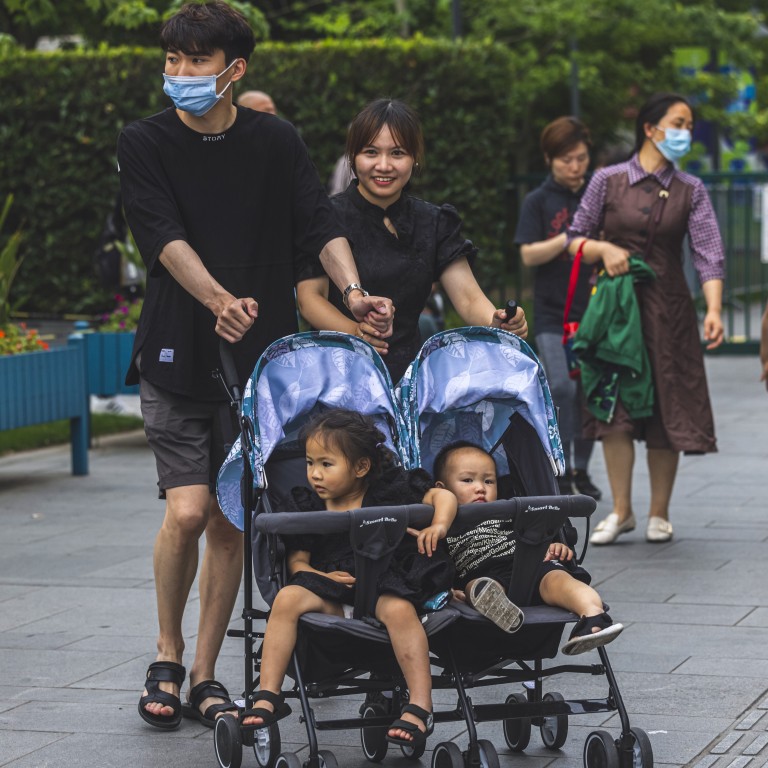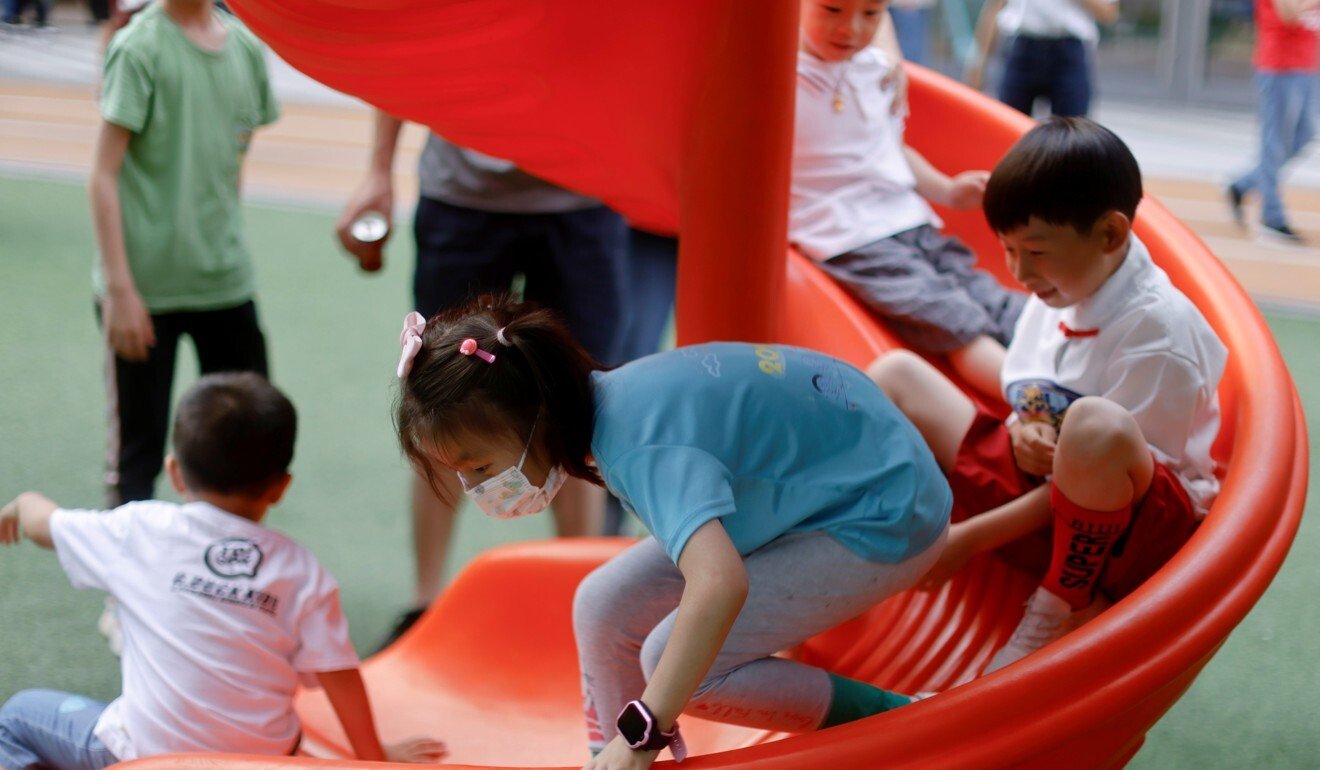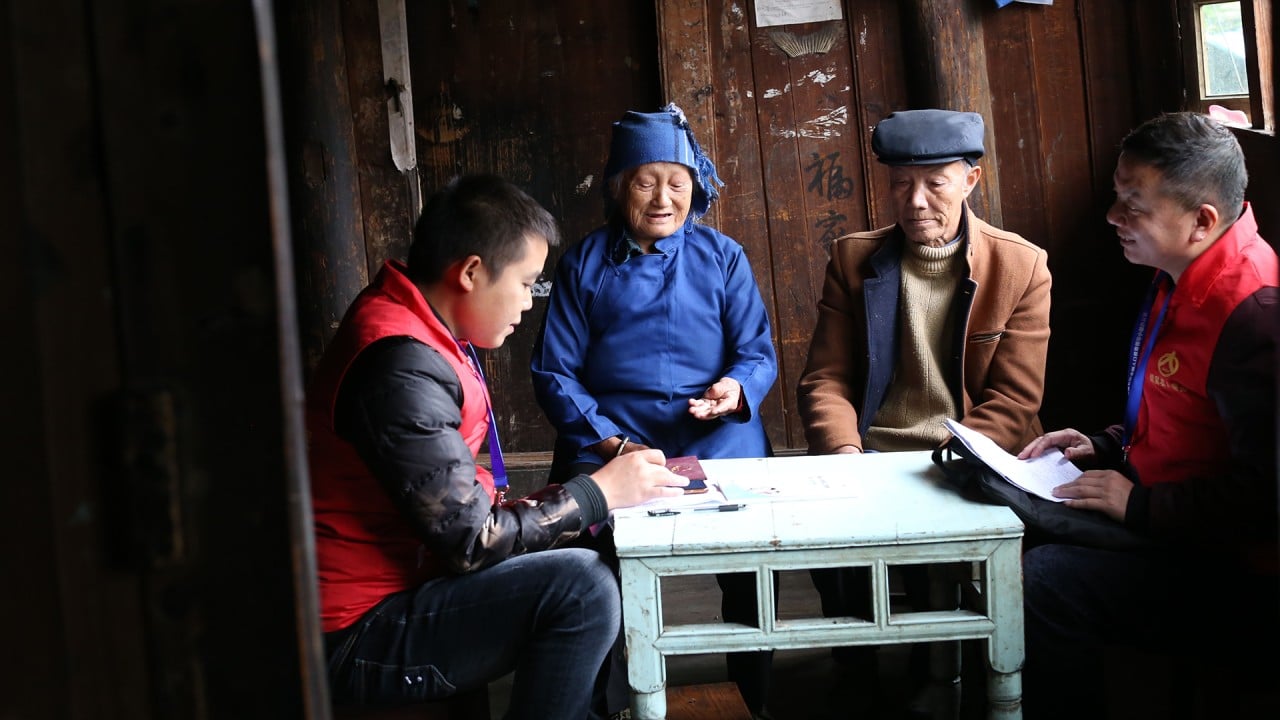
‘Too much pressure’: mixed reaction to China’s new 3-child policy
- Beijing has relaxed its family planning rules, but researchers aren’t optimistic that young Chinese will want to have more kids
- The cost of raising children may deter some couples, but for others the news is cause for celebration
An online survey conducted soon after the change was announced on Monday suggests it could be a hard sell: 90 per cent of respondents said they “would not consider” having three children.
State news agency Xinhua polled 31,000 people, finding just 1,443 of them were “ready” to have a third child, it was “on the agenda” for 213, while 828 were “hesitant”.
The poll results disappeared not long after they were posted.

02:04
China expands two-child policy to three
While an online survey provides a limited picture of public opinion, a report by demographers at Renmin University of China backs up that sentiment. They estimated that the policy would lead to an annual increase of 200,000 to 300,000 births in the next five years – slightly up from the rate of 12 million births last year.
Hu Xingdou, an independent political economist in Beijing, said young Chinese were unlikely to want to have bigger families.
“For China’s new ‘lying flat’ generation, the three-child policy may have little appeal, but for others, it may have some traction,” Hu said. “The government should work hard to relieve the burden of education, of housing among other things to improve people’s willingness [to have more children].”
Why China’s three-child policy is unlikely to improve the gloomy long-term economic outlook
“Lying flat” – or tang ping – is a neologism embraced by disillusioned young Chinese on social media, describing those who decide to put in the bare minimum effort or just do nothing and “lie down” rather than deal with the expectations and pressures of work and modern life. Many have given up on goals like buying a house or getting married and having children.
Jenny Wu is one of them. The 32-year-old public servant in Beijing has a master’s degree from prestigious Peking University, but after working in a few different jobs she became exhausted.
“Life just felt so tiring, I just wanted to find a job close to home, something that wasn’t hectic even if the salary wasn’t high, so that I could ‘lie flat’. Luckily I found it,” she said.
“I used to think I had bright prospects, but I don’t see that any more. I think I’ve just lost that desire.”

Wu and her husband, who does research and development for a technology company, have been married for over three years. They have decided not to have children.
“Many of our friends don’t understand why we don’t want kids. We live in Haidian district so if we had children they could get into one of the best primary schools in Beijing,” Wu said.
“But there’s too much pressure on education, the competition is too fierce – it just drives people crazy and we don’t want to join that game and have ‘elite’ children … we don’t want to be looked down on by others.”
China population: millennial couples decry ‘unaffordable’ childcare as fertility rate falls
China had a fertility rate of just 1.3 children per woman in 2020, according to official data. That puts it on par with ageing societies like Japan and Italy and it is far short of the roughly 2.1 needed for “replacement level fertility”.
In a bid to avoid a significant economic slowdown from its rapidly ageing population, Beijing scrapped its decades-old one-child policy in 2016, replacing it with a two-child limit, but it has failed to boost the birth rate.
For some, however, the latest policy relaxation was cause for celebration.
“I shed tears of joy,” said Lily Zhang, 30, who lives in Wuhan, Hubei and is pregnant with her second child. “I like kids and I definitely want to have a third one.”

10:42
China 2020 census records slowest population growth in decades
Like many Chinese her age, Zhang grew up as an only child and wants her own children to have siblings. She and her husband are computer programmers with a combined annual income of about 500,000 yuan (US$78,385) – they think it will be enough to raise three children in Wuhan, where living costs are lower than cities like Beijing and Shanghai.
“I always wanted to have a big family – it means you’ve got more people to support you,” she said. “Couples having a third child used to be fined 160,000 yuan [US$25,000] in Wuhan. This new policy sends a very positive message.”
Some have been willing to pay the fines to have bigger families. Emma Xu, 34, has three children.
“My husband and I are from rural China, so even under the one-child policy the rules stated that we were allowed to have two children since we had a daughter first,” said Xu, who lives in Shanghai.
“We paid a fine for our third child – we thought it was better for our kids to have siblings. If you leave them money they might just squander it, but siblings are companions,” she said. “My parents suffered under the one-child policy … but now we can have more children, so why not?”




